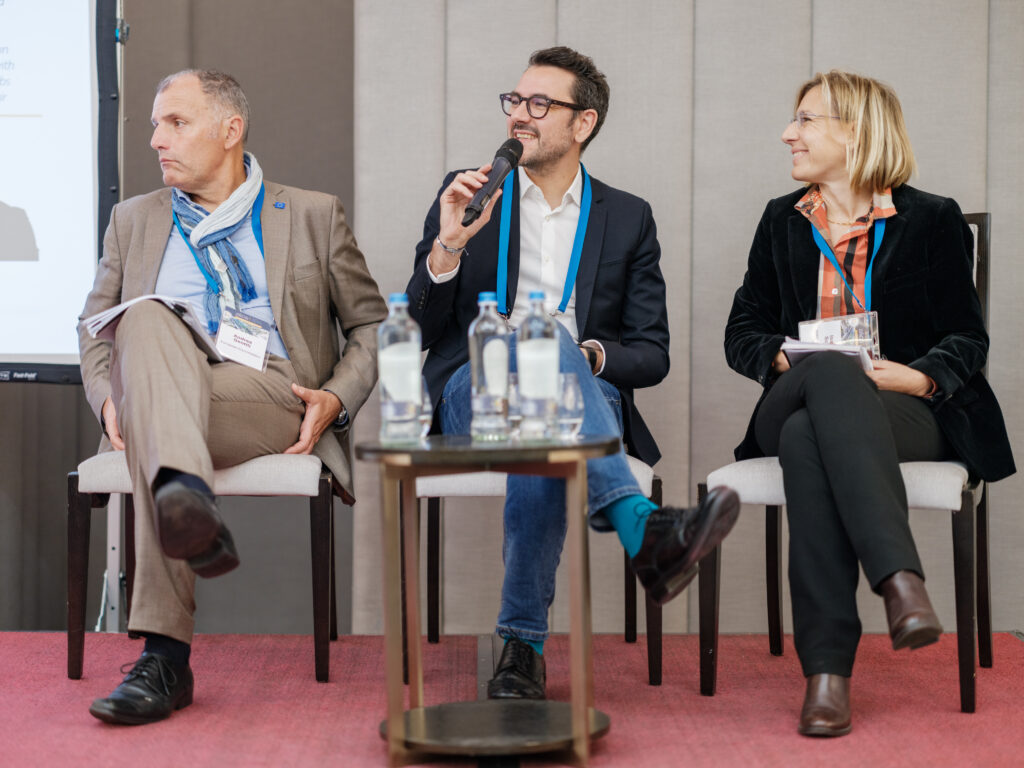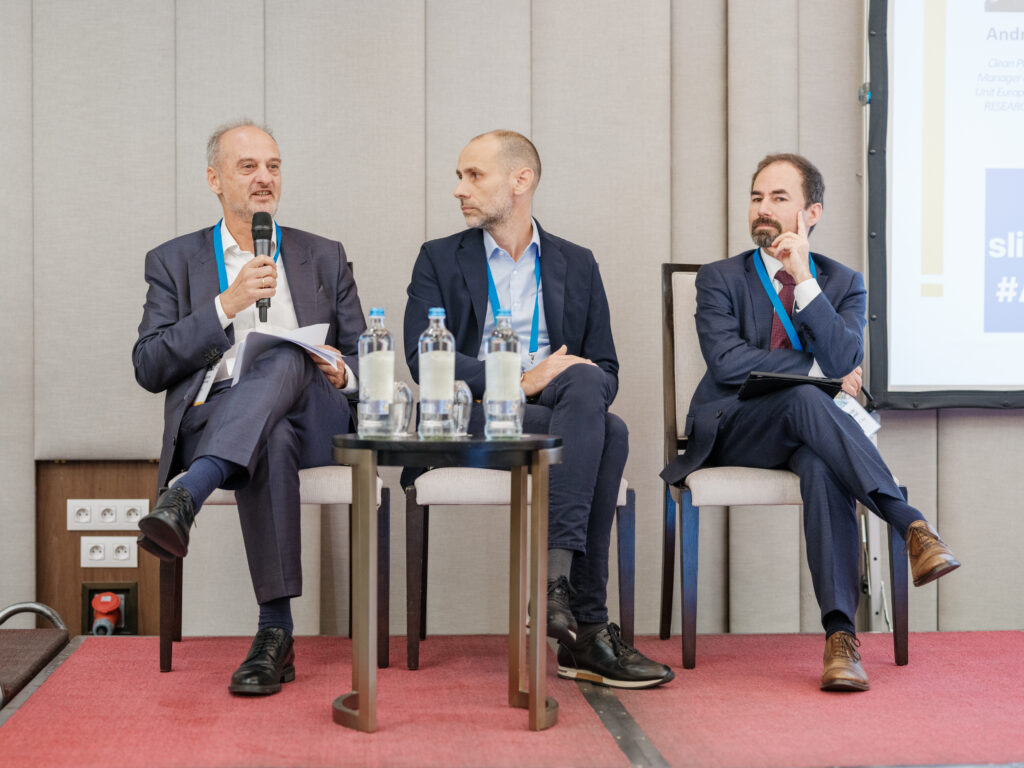Monday, December 9th, 2024
The ALICE Logistics Innovation Summit session titled “The role of research and innovation in freight transport and logistics twin transition” showcased how European research and innovation (R&I) programmes, such as Horizon Europe, are supporting technologies and innovations development to decarbonize and digitize logistics for a more competitiveness industry.
Participants explored the transformative role of R&I programmes, European Technology Platforms, and collaborative partnerships in driving systemic change across the sector.
The session highlighted the importance of fostering collaboration between research, industry stakeholders, and public authorities to address societal, environmental, and economic challenges and opportunities and enable systemic transformations of transport and logistics.
Session highlights
European technology platforms fostering knowledge and innovation: Making long-term strategies a reality
European Technology Platforms (ETPs) such as ALICE ARE pan-European ecosystems of research & Innovation. They are essential connectors, enabling cross-sectoral collaboration, ensuring that R&I outputs are aligned with industry and societal needs and supporting innovation adoption and scaleup. By bringing together different stakeholders – researchers, industry leaders and policy makers – ETPs define, promote and support implementation of long-term strategies as tools for scaling up innovation.
ETPs are instrumental in the creation of Research & Innovation partnerships in key innovation areas such as: Zero Emissions Road Transport (2ZERO), Connected, Cooperative and Automated Mobility (CCAM) addressing road automation, Rail Freight Competitiveness (Europe’s Rail) and Zero Emissions Waterborne Transport (ZEWT) to address concrete challenges and opportunities. ALICE is supporting European Partnerships on Transport together with fellow transportation ETPs: ERTRAC, ERRAC and WATERBORNE. Transport decarbonization, automation and digitalization are high in the agenda of logistics stakeholders and shippers that will adopt these technologies as part of their supply chains to reach their sustainability and competitiveness goals. ALICE has a long-lasting collaboration with Transportation ETPs and direct involvement in Partnerships and fellow Platforms.

Driving decarbonization and competitiveness
Efforts to decarbonize freight transport and logistics are central to the European Green Deal and industry. The challenge is to drive this transition while keeping or improving European competitiveness. Collaboration between stakeholders across road, rail, waterways, and hubs (ports, hinterland hubs) is essential for creating efficient and interconnected multimodal transport networks serving logistics companies and goods manufacturers as a factor for competitiveness of their supply chains. Participants emphasized that achieving this transformation requires a focus on large-scale demonstration projects: implementing pilot initiatives to build trust, test technologies, and scale high-impact solutions.
Supporting start-ups and SMEs in R&I programmes
Small and medium-sized enterprises (SMEs) are the backbone of the logistics sector, but they often face barriers to participating in R&I projects. These challenges include financial constraints, complexity in accessing funding and difficulties in translating research results into practical applications.
To bridge this gap, stakeholders highlighted the need for:
The review of the Horizon Europe Programme and upcoming Framework Programme (2028-2025) will strengthen support for start-ups. Nevertheless, this needs to be accompanied by a strengthening of the collaboration pillar for Research and Innovation (Pillar 2) to enable the systemic transformation and create the market conditions for start-ups to scale up and grow in the new markets created. However, the increased efforts to support start-ups will not bring the expected benefits without the enabling societal and industry transitions supported by partnerships and collaborative innovation in Pillar 2.

From R&I to scaling up innovation
Participants emphasized the importance of viewing logistics as a single system, with collaboration across transport modes and sectors driving integration. Rail, for example, offers significant energy efficiency benefits but requires digitalization and flexibility to meet the dynamic demands of modern supply chains.
The role of logistics and users is key for taking up and innovation. R&I programmes and partnerships will show their impact as much as they can engage with the final users and customers of the innovations brought forward. This needs to happen already as part of the Research and Innovation activities.
Ports were also highlighted as hubs of innovation, with digital platforms improving coordination between stakeholders and alternative fuels paving the way for greener operations.
Challenges and opportunities
The session addressed several pressing challenges:
The session concluded with a strong emphasis on the importance of research and innovation in achieving the logistics sector’s twin transition of the logistics sector. By aligning the efforts of all stakeholders and exploiting the potential of European R&I programmes, the industry can decarbonize while increasing its global competitiveness.
For more insights and to get involved in shaping the future of logistics, explore the ALICE Summit website and consider joining ALICE collaborating with our network of experts. Together, we can drive a green and digital future for freight transport and logistics.
